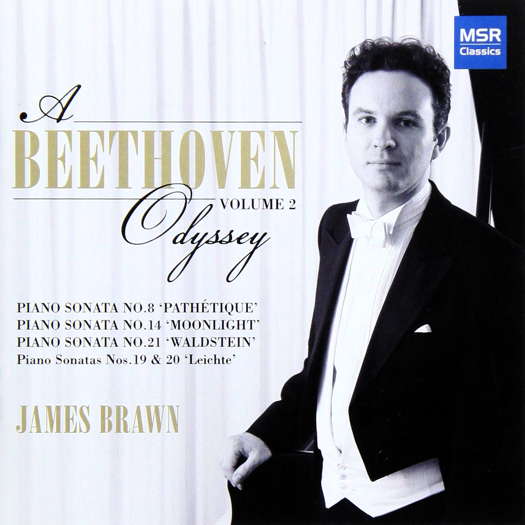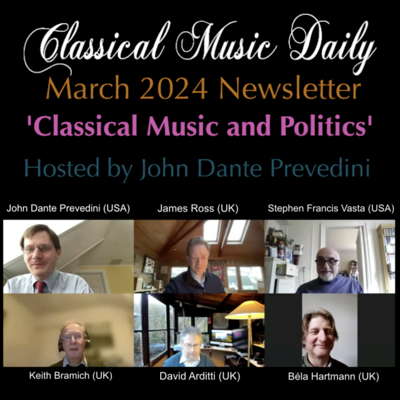 SPONSORED: CD Spotlight. Perfect Indeed - More Beethoven from James Brawn, recommended by Andrew Schartmann.
SPONSORED: CD Spotlight. Perfect Indeed - More Beethoven from James Brawn, recommended by Andrew Schartmann.
All sponsored features >>
Charles Wuorinen
Award-winning American composer, pianist and conductor Charles Wuorinen was born in Manhattan on 9 June 1938. He began composing at five, and piano lessons at six. He won the New York Philharmonic Orchestra's Young Composers' Award at the age of sixteen and went on to study music at Columbia University.
With cellist Joel Krosnick and composer, flautist and conductor Harvey Sollberger, Wuorinen formed the chamber ensemble The Group for Contemporary Music in 1962. As well as performing music by Milton Babbitt, Elliott Carter, Stefan Wolpe and, of course, Wuorinen himself, the group raised the standard of performance of contemporary music in New York City, and acted as a model for other similar US organisations appearing later.
Wuorinen created over 270 compositions, including vocal and solo instrumental works, operas and music for orchestra. Time's Encomium (1968-9), his only completely electronic piece, commissioned by Nonesuch Records, won the 1970 Pulitzer Prize for Music.
Time's Encomium is the title because in this work everything depends on the absolute, not the seeming, length of events and sections. Being electronic, Time's Encomium has no inflective dimension. Its rhythm is always quantitative, never qualitative. Because I need time, I praise it; hence the title. Because it doesn't need me, I approach it respectively; hence the word encomium. - Charles Wuorinen
Wuorinen taught academically, including at Columbia University (1964-71) and the Manhattan School of Music (1971-79). He had his champions, including James Levine, who commissioned and performed several works from the year 2000 onwards. But Wuorinen also had a reputation for intolerance, and for hostility towards anyone with differing views on music to his.
Charles Wuorinen died on 11 March 2020, aged eighty-one, after suffering a fall in September 2019.
A selection of articles about Charles Wuorinen
Spotlight. Musica Sine Rhetoricis - John Dante Prevedini discovers a valuable release of new chamber music for guitar. '... an astonishing diversity of creative voices ...'
Classical music news - March 2020 Obituaries - Our summary of those the classical music world lost last month
Flowers of Light - Puccini's 'I crisantemi' as a pedagogical tool for piano performance majors, by Heidi Lowy


